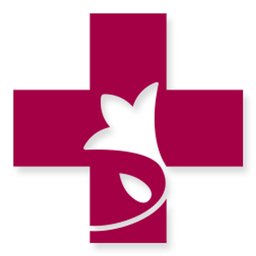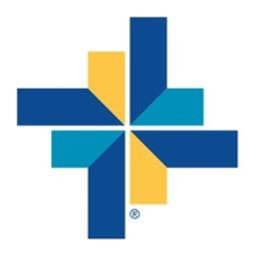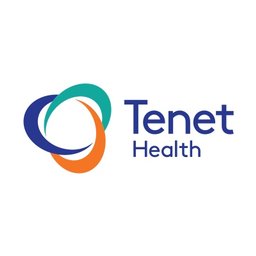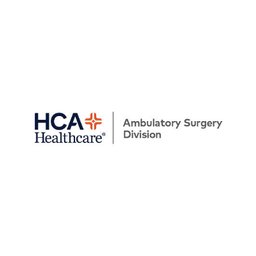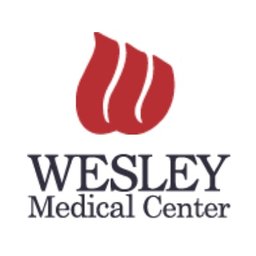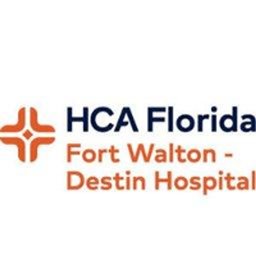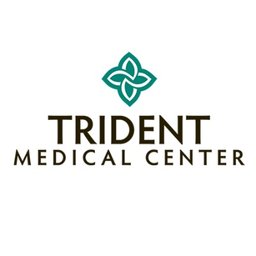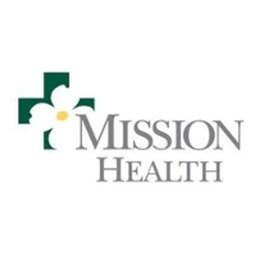Join us as a
Registered Nurse (RN) Surgery- Urology Team Leader position at Flowers HospitalThe Registered Nurse (RN) provides patient-centered care through the nursing process of assessment, diagnosis, planning, implementation, and evaluation. This role is responsible for coordinating and delivering high-quality care based on established clinical protocols and physician/provider orders. The RN collaborates with physicians, nurses, and other healthcare professionals to ensure effective patient care and desired outcomes, while maintaining a supportive and compassionate environment for patients and their families.
- Coordinates and delivers high-quality, patient-centered care in accordance with organizational policies, protocols, and the nursing process.
- Conducts thorough patient assessments and documents findings accurately, reporting changes in condition to the appropriate care team members.
- Utilizes knowledge of human growth and development to provide age-appropriate care and education.
- Administers prescribed medications, monitors for side effects, and documents administration in accordance with standards of practice.
- Assists physicians during procedures within the scope of documented competency and skill level.
- Collaborates with the healthcare team to develop, implement, and evaluate individualized care plans based on patient assessments and needs.
- Responds to medical emergencies and participates in life-saving interventions, such as CPR and code team activities, as appropriate.
- Advocates for the rights and needs of patients, ensuring their voices are heard and respected in care planning and delivery.
- Provides patient and family education on medical conditions, treatment plans, and post-discharge care, ensuring understanding and adherence to instructions.
- Implements and adheres to infection control protocols to prevent the spread of healthcare-associated infections.
- Monitors and operates medical equipment (e.g., IV pumps, monitors, ventilators) as needed for patient care and safety.
- Promotes patient safety by adhering to National Patient Safety Goals and maintaining a clean, safe environment for patients and staff.
- Participates in audits, chart reviews, and compliance checks to ensure adherence to standards of practice and regulatory requirements.
- Demonstrates responsible decision-making in planning, delegating, and providing care based on patient needs and organizational policies.
- Documents patient care and education thoroughly and promptly in the medical record.
- Engages in professional development to maintain clinical competency and understanding of current nursing standards and regulations.
- Participates in performance improvement initiatives, including data collection and process development, to enhance patient outcomes and care delivery.
- Critical Care RN:
+ Administers medications and other treatments as prescribed, including intravenous medications and therapies.
+ Manages complex medical equipment, including ventilators, monitoring devices, and other life-support systems.
+ Performs procedures such as inserting central lines, managing tracheostomies, and providing advanced cardiac life support.
- Emergency Services RN:
+ Rapid Assessment and Triage: Evaluate patients' conditions quickly to determine the severity of their injuries or illnesses and prioritize care accordingly.
+ Conducts emergency procedures such as intubation, wound care, and suturing.
+ Implements interventions to stabilize patients, including administering medications, starting IV lines, and providing respiratory support.
- OR Services RN:
+ Provides comprehensive care to patients before, during, and after surgery, including assessments, planning, and evaluation of nursing care.
+ Scrubs in for surgeries, assisting the surgical team with instruments and supplies, and ensuring a sterile environment.
+ Monitors patient vital signs, administers medications, and observes for changes in patient condition.
- Cardiac Surgery RN:
+ Continuously assesses patients' condition, including vital signs, hemodynamic parameters, and ECG readings.
+ Administers medications and IV drips, adjusting dosages based on the patient's condition.
+ Proficient in operating and maintaining advanced life support equipment like ventilators, intra-aortic balloon pumps, and ECMO.
+ After cardiac surgeries, monitors patients' recovery, manage chest tubes, pacing wires, and wound care.
- Endoscopy RN:
+ Assesses patient needs, reviews medical history, explains procedures, obtains consent, and prepares the patient for procedure.
+ Monitors patient vitals, administers medications, and assists the physician during procedure.
+ Provides post-procedure care, monitors recovery, and educates patients about aftercare instructions.
+ Ensures the endoscopy room is properly prepared, instruments are sterilized, and equipment is functioning correctly.
- Obstetrics/Labor and Delivery/Post Partum/Nursery RN:
+ Educates patients about pregnancy, provides prenatal screenings, and prepares patients for labor and delivery.
+ Assesses and monitors the new mother's physical recovery, including vital signs, postpartum hemorrhage, and potential complications like postpartum depression.
+ Assists with epidurals and other pain management techniques during labor.
+ Administers pain medication, induces labor, and manages other medication needs during labor and delivery.
+ Assists during labor and delivery, monitors fetal well-being, administers medications, and provides pain relief. Monitors mothers and newborns after delivery, assessing their well-being, and providing education on postpartum care and breastfeeding.
+ Assesses and monitors newborn health, taking vital signs, performing routine assessments, and educating parents on newborn care.
+ Assists with gynecological exams and procedures, and provides education on reproductive health, contraception, and prenatal care.
+ Educates patients about family planning, fertility, pregnancy, childbirth, and postpartum care.
+ Interprets fetal heart rate patterns and assesses fetal well-being using electronic fetal monitoring.
- Oncology RN:
+ Administers chemotherapy, manages side effects, monitors vitals, and manages pain.
+ Explains treatments, answers questions, and provides information on resources.
+ Provides emotional and psychological support to patients and their families.
- Orthopedics RN:
+ Provides specialized care for patients with musculoskeletal conditions, injuries, and diseases.
+ Provides care for Orthopedic patients encompassing pre-operative and post-operative care.
+ Conducts peripheral/vascular assessments.
+ Treats patients with immobilization devices.
+ Provides pain management.
+ Provides patient education.
- PACU RN:
+ Assesses the patient's level of consciousness and responsiveness as they wake up from anesthesia.
+ Evaluates pain levels and administers pain medications as prescribed.
+ Observes any side effects of anesthesia, such as nausea, vomiting, shivering, or muscle aches.
+ Monitors for and respond to any post-operative complications.
+ Administers medications, including pain relievers and other post-operative medications, as prescribed.
+ Regulates intravenous (IV) fluids and monitor fluid balance.
+ Checks and changes dressings on surgical wounds.
+ Ensures a clear airway and provide oxygen support as needed.
+ Educates patients and families about post-surgery care, potential complications, and discharge instructions.
- NICU RN:
+ Continuously assesses and monitors vital signs (heart rate, respiratory rate, blood pressure, oxygen saturation) and other signs of distress.
+ Administers prescribed medications, intravenous fluids, and other treatments, including respiratory support and oxygen therapy.
+ Manages feeding needs, including tube, breast milk feeding support, and ensuring adequate nutrition.
+ Provides basic care tasks like diaper changes, bathing, and positioning.
+ Performs procedures like inserting IV lines, administering medications, and assisting with intubation or ventilation. Operates and adjusts specialized medical equipment used in the NICU.
- Telemetry RN:
+ Using telemetry equipment to track heart rhythms (EKG), blood pressure, oxygen saturation, and other vital signs.
+ Analyzes telemetry data to identify trends, abnormalities, and potential problems, and reports these findings to physicians.
+ Provides direct patient care, including medication administration, wound care, and patient education, with a focus on cardiac health.
+ Recognizes and responds to emergencies, such as cardiac arrest, and implements appropriate interventions.
- Dialysis RN:
+ Sets up and operates dialysis machines, monitors patients before, during, and after treatment, and adjusts treatment parameters as needed.
+ Takes vital signs, monitors signs of complications, and responds to changes in patient condition.
+ Educates patients and families about kidney disease, dialysis procedures, and the importance of adhering to treatment plans, diet, and medication.
+ Inspects and maintains dialysis machines and equipment.
- Cath Lab RN:
+ Pre-Procedure:
- Reviews medical history, assesses patient's overall health, and prepares them for the procedure.
- Intravenous (IV) Line Initiation: Starts and maintains an IV line for medication administration.
- Administers medications as prescribed by the physician.
- Educates patients and families about the procedure and what to expect.
- Verifies that surgical consents have been signed.
+ During the Procedure:
- Assists the Cardiologist during the catheterization process.
- Closely monitors the patient's vital signs, hemodynamic data, and sedation levels.
- Ensures proper functioning of equipment and supplies.
- Manages potential complications and responding to emergencies.
+ Post-Procedure:
- Continues to monitor the patient's vital signs and overall condition after the procedure.
- Administers post-procedure medications as needed.
- Performs other duties as assigned.
- Complies with all policies and standards.
- 0-2 years of experience in a clinical nursing role or student clinical rotations in an acute care setting required
- Strong knowledge of the nursing process and clinical nursing practices.
- Ability to perform thorough patient assessments and communicate findings effectively.
- Proficient in administering medications and monitoring for side effects.
- Effective communication and interpersonal skills to collaborate with interdisciplinary teams.
- Strong organizational skills and attention to detail in documenting patient care.
- Knowledge of safety standards, infection control, and quality improvement initiatives.
- RN - Registered Nurse - State Licensure and/or Compact State Licensure required
- BCLS - Basic Life Support required
- ACLS - Advanced Cardiac Life Support preferred
- PALS - Pediatric Advanced Life Support preferred
- NRP - Neonatal Resuscitation preferred
- Refer to facility or unit-specific guidelines for additional requirements.
Salary
USD 33,387 - 40,803 /yearly
Yearly based
Location
AL , United States AL, United States
AL , United States AL, United States

